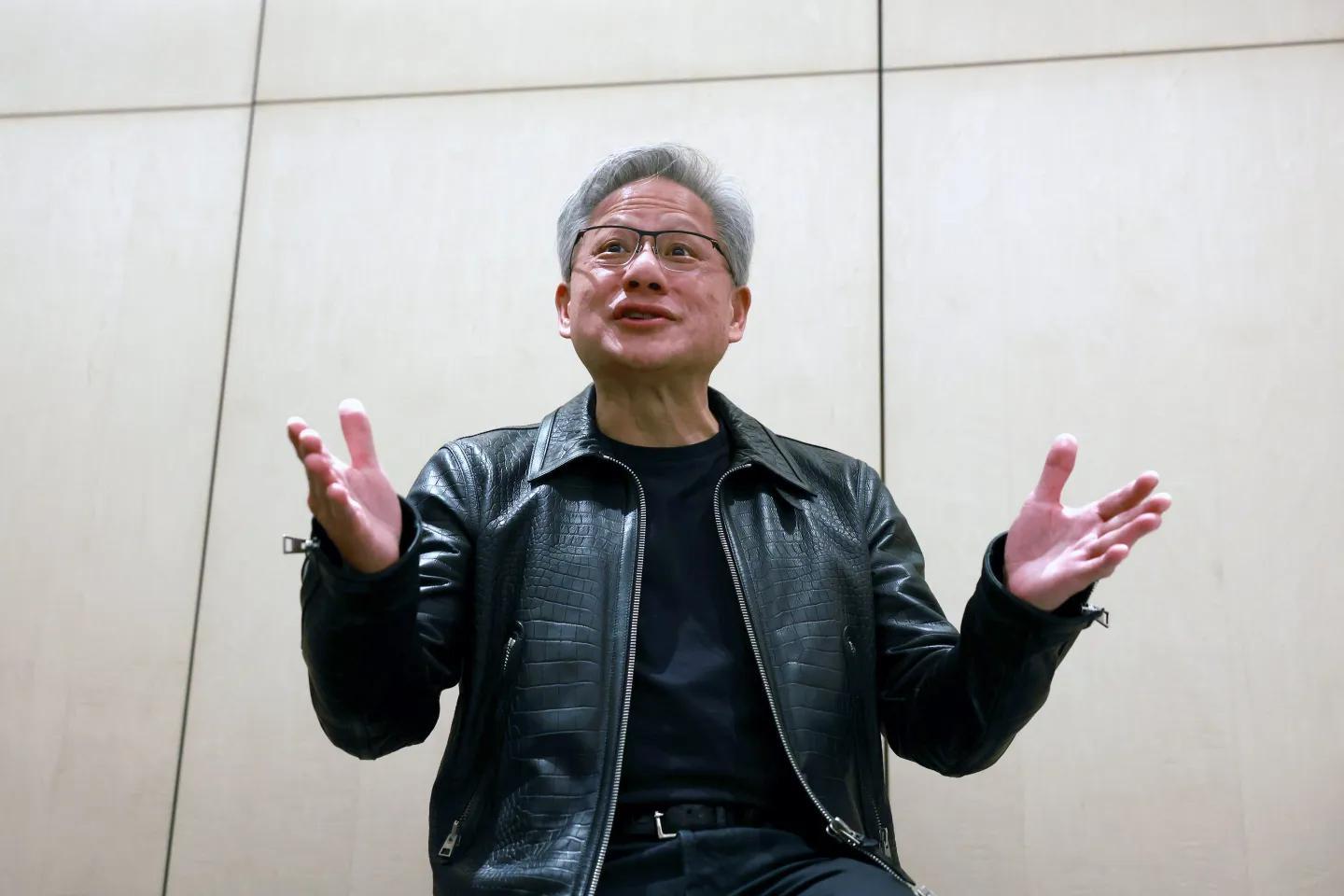
正值假期如火如荼,你或許正在遠離家鄉的地方閱讀這篇文章。也許正凝視著白雪皚皚的山坡,又或許正安坐于某處風景如畫的海灘邊的棚屋里?又或者只是在堂兄家的餐桌旁,享受著咖啡機(或酒柜)近在咫尺的溫馨與愜意。
然而,如果你是科技界的億萬富翁,那么你極有可能在佛羅里達州的某個特定地點(特朗普旗下的海湖莊園)度過了一段時光。據《紐約時報》報道,埃隆·馬斯克(Elon Musk)一直在這里過冬,住在每晚2000美元的“榕樹”別墅里。最近幾周,其他訪客還包括亞馬遜(Amazon)創始人杰夫·貝佐斯(Jeff Bezos)、蘋果(Apple)首席執行官蒂姆·庫克(Tim Cook)和臉書(Facebook)聯合創始人馬克·扎克伯格(Mark Zuckerberg)。
在這位當選總統準備迎接新年之際,可能會有更多科技界精英人士加入其歡慶行列。在Truth Social上的一篇帖子中(或許本意是想以私信形式發送給馬斯克),特朗普談到了新年慶祝活動,并提到比爾·蓋茨(Bill Gates)已提出要參加。
“新年前夜將會非常精彩!!“這位當選總統承諾道,并以他的姓名首字母“DJT”作為落款。
一波三折的7億美元交易
周一,圖形芯片巨頭英偉達正式完成了對Run:AI的收購。據報道,英偉達斥資7億美元收購了Run:AI,該軟件能讓客戶在云端利用和優化圖形處理器。盡管英偉達早在4月份就宣布了收購這家以色列公司的計劃,但周一卻出人意料地宣布,將Run:AI的軟件開源。
對于將所收購的軟件開源的決定,英偉達并未給出過多闡釋,但VentureBeat推測,此舉可能是為了緩解監管方面的擔憂。畢竟,英偉達是人工智能圖形處理器的主要制造商,市值達3.4萬億美元。開放Run:AI軟件的訪問權限,無疑是一種明智且友好的姿態,這一做法與微軟(Microsoft)的策略如出一轍。在竭力爭取其690億美元收購動視暴雪(Activision Blizzard)交易獲批過程中,微軟同意將《使命召喚》授權給其他平臺,為期十年。
而且我們也不能忘記,英偉達當前正面臨一項重大的反壟斷挑戰:中國最近對其2020年收購以色列硬件公司Mellanox展開了調查。
字節跳動的70億美元漏洞
據The Information援引匿名消息人士報道稱,TikTok的中國母公司字節跳動(ByteDance)計劃明年斥資70億美元購買英偉達最先進的圖形處理器。
但且慢,美國政府不是以國家安全為由禁止向中國出售先進的人工智能芯片嗎?確實如此。但是,據The Information報道,字節跳動并非直接購買芯片,而是通過在美國運營的數據中心提供的云服務訪問這些芯片。
倘若這看似是一個巨大的漏洞,那是因為它確實是。根據The Information此前的一篇報道,美國商務部去年早些時候公布了擬議規則,規定云服務提供商需向美國政府報告任何可能利用大型人工智能模型進行惡意網絡活動的外國客戶,而這些模型正是通過云服務進行訓練的。然而,隨著新一屆政府即將在幾周內入主白宮,似乎關于填補這一漏洞或是放任不管的決策,都將由特朗普團隊做出。
人工智能機器人夢想成為外科醫生
這是一件值得期待的事情,或者說是一件讓人憂心的事情——取決于你的看法。
據《華盛頓郵報》報道,目前由醫生通過操縱桿控制的先進外科手術機械臂,能夠通過使用人工智能并觀看類似手術過程的視頻資料,學會如何自主進行醫療操作。
約翰斯·霍普金斯大學(John Hopkins University)和斯坦福大學(Stanford University)的研究人員正在研發人工智能機器人外科醫生,并于近期在德國慕尼黑舉辦的機器人學習會議上展示了該項目。據《華盛頓郵報》報道,這些機器人“掌握了自主操控針具、打結以及縫合傷口的技能”,甚至具備自行糾正諸如針具掉到地上等失誤的能力。
考慮到固有的風險、監管障礙以及所牽涉到的新醫療倫理和責任問題,要讓這些機器人醫生為你修復撕裂的前十字韌帶或為你的奶奶進行髖關節置換手術,還有很長的路要走。但據《華盛頓郵報》報道,研究人員已經準備讓機器人在一組溫順且易于操控的“患者”身上進行手術操作了:動物尸體。(財富中文網)
譯者:中慧言-王芳
英偉達(Nvidia Corp)聯合創始人兼首席執行官黃仁勛(Jensen Huang)(Valeria Mongelli/Bloomberg-Getty Images)
正值假期如火如荼,你或許正在遠離家鄉的地方閱讀這篇文章。也許正凝視著白雪皚皚的山坡,又或許正安坐于某處風景如畫的海灘邊的棚屋里?又或者只是在堂兄家的餐桌旁,享受著咖啡機(或酒柜)近在咫尺的溫馨與愜意。
然而,如果你是科技界的億萬富翁,那么你極有可能在佛羅里達州的某個特定地點(特朗普旗下的海湖莊園)度過了一段時光。據《紐約時報》報道,埃隆·馬斯克(Elon Musk)一直在這里過冬,住在每晚2000美元的“榕樹”別墅里。最近幾周,其他訪客還包括亞馬遜(Amazon)創始人杰夫·貝佐斯(Jeff Bezos)、蘋果(Apple)首席執行官蒂姆·庫克(Tim Cook)和臉書(Facebook)聯合創始人馬克·扎克伯格(Mark Zuckerberg)。
在這位當選總統準備迎接新年之際,可能會有更多科技界精英人士加入其歡慶行列。在Truth Social上的一篇帖子中(或許本意是想以私信形式發送給馬斯克),特朗普談到了新年慶祝活動,并提到比爾·蓋茨(Bill Gates)已提出要參加。
“新年前夜將會非常精彩!!“這位當選總統承諾道,并以他的姓名首字母“DJT”作為落款。
一波三折的7億美元交易
周一,圖形芯片巨頭英偉達正式完成了對Run:AI的收購。據報道,英偉達斥資7億美元收購了Run:AI,該軟件能讓客戶在云端利用和優化圖形處理器。盡管英偉達早在4月份就宣布了收購這家以色列公司的計劃,但周一卻出人意料地宣布,將Run:AI的軟件開源。
對于將所收購的軟件開源的決定,英偉達并未給出過多闡釋,但VentureBeat推測,此舉可能是為了緩解監管方面的擔憂。畢竟,英偉達是人工智能圖形處理器的主要制造商,市值達3.4萬億美元。開放Run:AI軟件的訪問權限,無疑是一種明智且友好的姿態,這一做法與微軟(Microsoft)的策略如出一轍。在竭力爭取其690億美元收購動視暴雪(Activision Blizzard)交易獲批過程中,微軟同意將《使命召喚》授權給其他平臺,為期十年。
而且我們也不能忘記,英偉達當前正面臨一項重大的反壟斷挑戰:中國最近對其2020年收購以色列硬件公司Mellanox展開了調查。
字節跳動的70億美元漏洞
據The Information援引匿名消息人士報道稱,TikTok的中國母公司字節跳動(ByteDance)計劃明年斥資70億美元購買英偉達最先進的圖形處理器。
但且慢,美國政府不是以國家安全為由禁止向中國出售先進的人工智能芯片嗎?確實如此。但是,據The Information報道,字節跳動并非直接購買芯片,而是通過在美國運營的數據中心提供的云服務訪問這些芯片。
倘若這看似是一個巨大的漏洞,那是因為它確實是。根據The Information此前的一篇報道,美國商務部去年早些時候公布了擬議規則,規定云服務提供商需向美國政府報告任何可能利用大型人工智能模型進行惡意網絡活動的外國客戶,而這些模型正是通過云服務進行訓練的。然而,隨著新一屆政府即將在幾周內入主白宮,似乎關于填補這一漏洞或是放任不管的決策,都將由特朗普團隊做出。
人工智能機器人夢想成為外科醫生
這是一件值得期待的事情,或者說是一件讓人憂心的事情——取決于你的看法。
據《華盛頓郵報》報道,目前由醫生通過操縱桿控制的先進外科手術機械臂,能夠通過使用人工智能并觀看類似手術過程的視頻資料,學會如何自主進行醫療操作。
約翰斯·霍普金斯大學(John Hopkins University)和斯坦福大學(Stanford University)的研究人員正在研發人工智能機器人外科醫生,并于近期在德國慕尼黑舉辦的機器人學習會議上展示了該項目。據《華盛頓郵報》報道,這些機器人“掌握了自主操控針具、打結以及縫合傷口的技能”,甚至具備自行糾正諸如針具掉到地上等失誤的能力。
考慮到固有的風險、監管障礙以及所牽涉到的新醫療倫理和責任問題,要讓這些機器人醫生為你修復撕裂的前十字韌帶或為你的奶奶進行髖關節置換手術,還有很長的路要走。但據《華盛頓郵報》報道,研究人員已經準備讓機器人在一組溫順且易于操控的“患者”身上進行手術操作了:動物尸體。(財富中文網)
譯者:中慧言-王芳
Jensen Huang, cofounder and chief executive officer of Nvidia Corp. (Valeria Mongelli/Bloomberg—Getty Images)
With the holidays in full swing, you may be reading this from somewhere beyond your home turf. Perhaps gazing at snow-covered slopes, or under a palapa on some picturesque beach? Or maybe simply at your cousin’s kitchen table, within arm’s reach of the comforts of the coffee maker (or the liquor cabinet).
If you’re a tech billionaire however, chances are good you’ve spent some time at a very specific address in Florida, at the Trump-owned Mar-a-Lago hotel. Elon Musk has been wintering on the grounds, staying in the $2,000-a-night “Banyan” cottage, according to the New York Times. Other visitors in recent weeks have included Amazon founder Jeff Bezos, Apple CEO Tim Cook, and Facebook cofounder Mark Zuckerberg.
As the president-elect prepares to ring in the new year, he may be joined by even more members of the tech aristocracy. In a post on Truth Social that may have been intended as a DM to Musk, Trump talked up the new year’s festivities, noting that Bill Gates had asked to attend.
“New Year’s Eve is going to be AMAZING!!!” the president-elect promised, signing off with his initials “DJT.”
A $700 million deal, with a twist
Graphics chip giant Nvidia officially completed its acquisition of Run:AI on Monday, plunking down a reported $700 million for software that lets customer harness and optimize GPUs in the cloud. But while Nvidia had announced its plans to buy the Israeli firm back in April, it added a surprise twist on Monday, stating that it will make Run:AI’s software open source.
While Nvidia offered little insight into its decision to open source its acquisition, VentureBeat theorized that the move likely was about easing regulatory concerns. Nvidia is the dominant maker for AI GPUs after all, with a $3.4 trillion market cap. Keeping access to Run:AI’s software open is a smart gesture of goodwill ripped straight out of the Microsoft playbook. In its efforts to win approval for its $69 billon acqustion of Activision Blizzard, Microsoft agreed to license Call of Duty to other platforms for ten years.
And let’s not forget that Nvidia already has one big antitrust problem on its plate as it is, with China’s recently launched investigation into its 2020 acquisition of Israeli hardware company Mellanox.
ByteDance’s $7 billion loophole
ByteDance, the Chinese parent company of TikTok, plans to spend $7 billion next year on Nvidia’s most advanced GPUs, according to a report in The Information citing an anonymous source.
But wait, aren’t sales of advanced AI chips to China blocked by the U.S. government on national security grounds? Indeed they are. But, The Information reports, ByteDance isn’t buying the actual chips, it’s buying access to the chips via cloud services offered by datacenters operating in the U.S.
If that seems like kind of a big loophole, well, that’s because it is. The Commerce department published proposed rules earlier this year requiring cloud providers to notify the U.S. government of any foreign customers training large AI models that could be used for malicious cyber activity, according to a previous report in The Information. With a new administration entering the White House in a just a few weeks though, it seems likely that any decision to close the loophole, or leave it, will fall to team Trump.
AI robots dream of being surgeons
Here’s something to look forward to—or one more thing to worry about—depending on your perspective.
The Washington Post reports that the advanced robotic arms used in surgery, which are currently controlled by doctors using joysticks, can learn to perform medical procedures autonomously by using AI and watching videos of similar surgical procedures.
The AI robo-surgeons are being developed by researchers at John Hopkins University and Stanford University, who recently presented their project at a robotic learning conference in Munich, Germany. According to the Post, the robots “learned to manipulate needles, tie knots, and suture wounds on their own” and were even able to self-correct mistakes like dropping a needle on the ground.
There’s still a long way to go before these robo-doctors will be replacing your torn ACLs or your gramma’s broken hip, given the inherent risks, the regulatory hurdles, and the novel questions of medical ethics and liability involved. But according to the Post, the researchers are already preparing to set the bots to work on one pliant and docile group of patients: animal cadavers.






